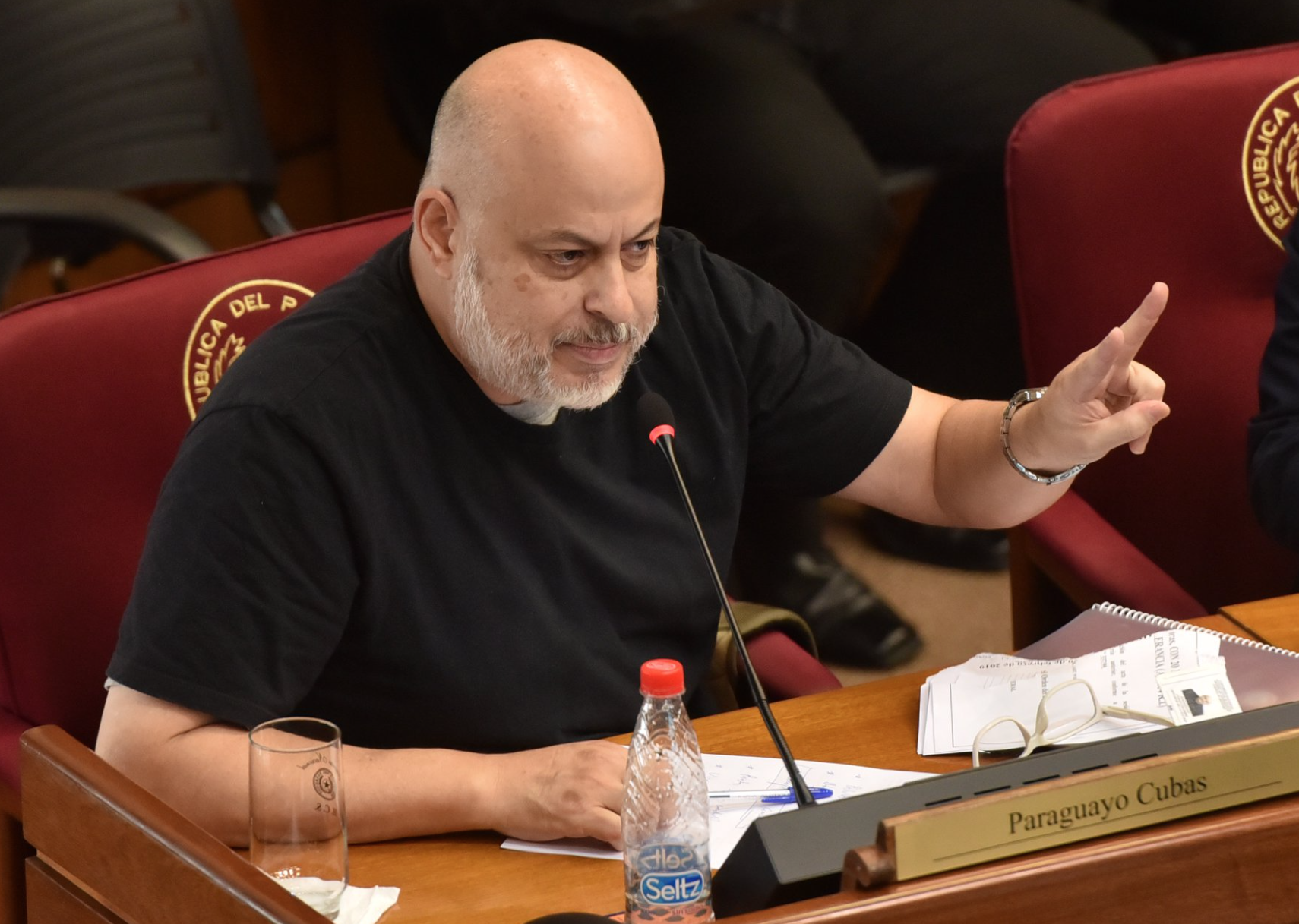“Is it ridiculous to defecate in a judge’s office?” asked Paraguayo Cubas, better known as Payo Cubas, to his interviewer Carlos Mateo Balmelli, on a television program. Indeed, the anecdote is that he literally dropped his pants and left his “gift” to a judge. “And how do you define yourself?” Carlos asked Payo. “I don’t see myself as a politician,” he replied, “I see myself more as a civic religious man, full of dogmas.” “I live in a state of constant academic excitement.”
The Latin American elections have seen a slew of opposing characters, those who really live “out of the box”, but Payo Cubas could very well occupy a prominent place in that league. His big, bald, oval head, with an intense gaze and a mocking smile, speaks and advocates for the legalization of marijuana to end the border mafia in Pedro Juan Caballero. His speech is incomprehensible and his associations are far-fetched, yet sharp.
However, Payo also brings with him a dose of anger, insults, threats, and violence. He is currently under arrest for disturbing the public peace and preaching hatred. He called to take over the Electoral Justice Tribunal with accusations of fraud, most likely unfounded. He usually threatens to take “the bandits” to the wall and there are many bandits. Few members of the political class escape that label. In fact, he proposes the death penalty for those who have stolen from the treasury.
Augusto Roa Bastos referred to the meekness of the Paraguayan people. Resilient and resigned. A nation that seems to live its destiny without the slightest sense of its rights, as if they were living with permission, in someone else’s land. The elites talk, debate, fight, and pronounce themselves on what should be, but Paraguayans have to bear public transportation of terrible quality, a health system that does not solve their problems and public schools in a precarious state. Payo seems to have penetrated that meek silence and channeled the underlying anger. When he shouts “al paredón” (be executed!), a chorus of anonymous voices shouts “si, carajo” (yes, fuck!).
Paraguay has been in stagnation for several years now. After having declined significantly between 2003 and 2014, poverty has remained at around 25%, and about 65% of the labor force is in the informal sector. Self-employed and domestic workers constitute a significant portion. About 255,000 thousand peasant families are said to be confined to smaller and smaller plots of land. The National Institute of Statistics states of a quarter of the population with moderate or severe food insecurity. Also, insecurity is a serious problem for citizens.
All the aforementioned issues hurt, it hurts even more when people feel that the system is rigged. The most highly paid formal employment in the country is in the public sector. This is where decent work is found, with certain benefits and with the prospect of minimum social protection. The issue is that this sector is dominated by the party-state, the Colorado Party, which mobilized its hard vote on election day and won again, with a simple majority. The one that protects its own, that is how they are perceived. On the other hand, the young man who works as a delivery driver for a living, the construction worker, the domestic worker or the peasant, understands that he has no future. The stagnation and the pandemic have exhausted the population.
Payo collected all this and was able to do so because his competitor in the opposition, Efraín Alegre, did not know how to become the valid interlocutor of that feeling of uneasiness and injustice. In the end, his discourse of “mafia” or “homeland” failed to touch the heartstrings of young people and the middle and lower classes. The liberal politician did his best, but ended up being considered part of “the same as always”. As a result, Payo came in third, but with 23%, close on the heels of the candidate of the so-called Concertación.
Unfortunately, the irate people have been wrong in their choice. Payo, the “romantic anarchist” who would have been a Trotskyist had he opted for socialism; the histrionic one, who admires Chiang Kai Shek, who says that communication with the people has to do with the look, is a shot in the air. He seduces, but he leads nowhere. He was ejected from the Senate for his expletives and behavior. When asked why he did not take care of his position, he replied, “it was too boring, I would propose one thing, and it was my vote against the rest, I ended up drinking half a liter of whiskey a day.”
Beyond Payo remains the discontent, what Payo himself expresses, not what he represents, because to be able to represent requires articulating something more coherent. How to win the trust of the people in a country of distrust? Years of dictatorship, corruption, inequality and impunity have corroded the country’s social capital. People do not seem to be asking for a social revolution, but the end of privileges. Something very basic, almost pre-modern.
*Translated from Spanish by Micaela Machado Rodrigues











